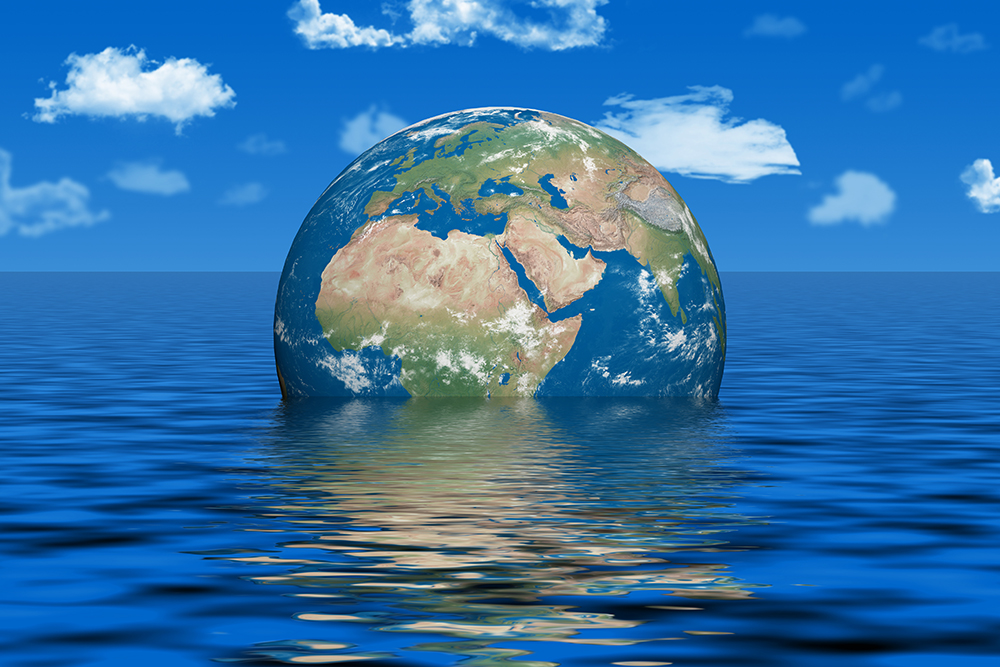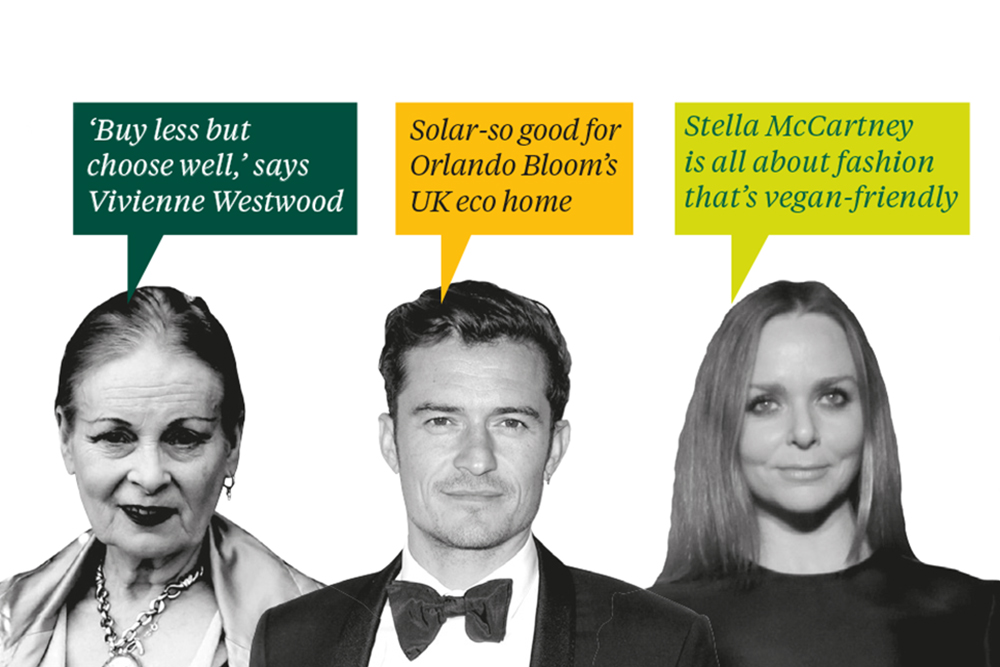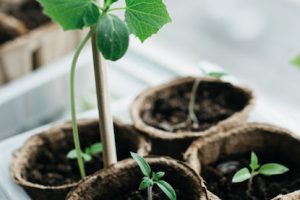5 things you can do to help reverse climate change

Monday. Your alarm goes off, and suddenly you remember: it’s recycling day. You rush downstairs, gather up the Sunday papers and the curry containers you were too tired to dispose of last night, don your slippers and tiptoe out into the rain to put them all in the green bin at the front of your house.
On the way to work, you treat yourself to a coconut water, keeping hold of the carton for the entirety of your journey because you know there is a recycling point close to your office.
Once in the office, you dispose of a print-out you made by mistake in the appropriate bin – and even scoop out the plastic film someone else has dropped in there. At lunch, you baulk at the ‘not yet recyclable’ small print on the packaging of the sandwich you fancy and opt for another.
And so it continues. Just like most people you know, you are – in your own small way – fully committed to reducing global greenhouse gas emissions.
But as you read more and more about fracking, big business-induced natural disasters, and how whatever we do collectively will be too little too late, you start to wonder whether there’s any point bothering anymore.
It’s not all doom and gloom
Certainly, recent films on the subject seem to suggest that there is not. Then there is the documentary by US environmental activist Josh Fox, which from the title down – How To Let Go Of The World (And Love All The Things Climate Can’t Change) – makes no bones about the bleak state of the planet. The concluding part of a trilogy that includes Gasland and Gasland Part II, it may begin with its creator dancing joyfully to Ob-La-Di, Ob-La-Da, but moves quickly into a series of statistics that are, quite simply, terrifying.
Example one: we have already warmed the earth by 1ºC, resulting in mammoth floods and droughts. We are now heading towards 1.5ºC, which cannot be prevented no matter what we do. At 2ºC, we will see the sea level rise between five and nine metres. At seven metres, most coastal cities, from New York to Shanghai, would be largely submerged in water.
Josh presents digital airborne images of what each city would look like. New York, in particular, does not look like somewhere you would want to be.
Example two: in China, 4,400 people die from air pollution each day. This is equivalent to 10 full Boeing 747 planes crashing every day. These are just two of many examples included in the film.
Josh, however, is keen to make it clear that he didn’t create the documentary to vanquish any hope its viewers might have. Rather, it is about trying to jolt them into taking action.
‘People now really need to get actively involved in changing things,’ he says, as we speak en route to a protest in Blackpool that aims to stop shale company Cuadrilla drilling in Lancashire next year.
‘Of course people should continue recycling and so on, but now it’s about joining anti-fracking movements. There are lots of them – you can find them online. It’s important, because there cannot be any more new fossil fuel projects.
‘At this point, we need a complete overhaul, because we don’t have any time left.’ And what if it is too late? ‘That’s why the film covers the things that climate can’t change: courage, resilience, human spirit. There are a lot of very inspiring people in the film, who have these qualities despite what’s happening. And that’s what’s important – and what is going to be important.’
Don’t just think, do
Josh certainly practises what he preaches, and receives ‘death threats and sabotage’ from the fossil fuel industry for his trouble. In his film, we see him being followed by the Chinese authorities to the extent that he is forced to use an ingenious method – which we won’t spoil – to get his footage safely out of the country.
Commendable and admirable action, indeed. But is it right for the rest of us to assume that the earth is doomed unless we collectively resort to militant activism?
Juliet Davenport, CEO of Good Energy, one of the UK’s first suppliers of 100% renewable energy, may concur that ‘we need a unified, urgent approach to cutting emissions’ and that ‘countries must increase support for renewable energy’, but she also believes it is far from too late.
‘Not long ago, the entire UK renewables industry used to hold their meetings in a room above a pub in west London,’ she points out. ‘But now, renewables produce more than 25% of the UK’s electricity needs. If we carry on this way, and implement changes like these globally, we can reduce our impact on the planet significantly. Renewable energy is mainstream now; it’s no longer niche. You can switch online or by phone – it only takes a few minutes – and for many customers, it costs no more than the tariff they had before with an old-fashioned “big six” supplier. Moving to a 100% renewable future is within our grasp.’
Juliet agrees with Josh that it is in the very nature of governments and companies that have invested significant money and time into the structure of the economy to try to eliminate all threats to their own wealth generation.
‘It’s a system that protects itself,’ she adds, ‘because the wealth ensures it can.’ But while she also agrees that it is crucial for individuals to use their purchasing power to turn public opinion away from the high-carbon industries, she is just as keen to stress the importance of ‘challenger companies with new low-carbon tech and governments, who understand the environmental damage we are handing down to the next generation’.
It’s not over yet
Juliet believes we are already starting to see real, positive change. ‘Worldwide investment in renewables has never been higher,’ she says, ‘and recently, worldwide use of renewables was greater than coal for the first time in history. We are on the way, and agreements such as the climate change agreement, signed in Paris last year, should allow us to hold countries to account, so they protect our planet for the future.’
So the simple message is that while the future of the planet is undeniably bleak, it is not unsalvageable. Yes, there are irreversible problems, but there are also aspects – such as the rising sea level – that could be stopped with immediate, collective action.
If everyone steps up from doing a little bit to doing a little bit more, then we can have reason to feel optimistic. The word that those who are passionate about the future of the planet most often use is ‘change’. No matter how positive or negative they are, you have to assume this would not be so if change were not still possible.
5 things you can do right now to help the fight for your planet
1. The things you do each day may seem small, but they matter. Do twice as much, and do it twice as well. Eating less meat is a good start: a third of the world’s carbon emissions come from agriculture and food production. Committed carnivores could eat less beef and more chicken, as raising cattle causes much more damage than raising chickens.
2. An environmental Fitbit for everyone from willing big businesses to individuals, The Global Calculator (globalcalculator.org) allows users to explore options for reducing global emissions until 2050, and see the consequences of said choices to 2100. Visualise how the choices we collectively make will shape the future.
3. Like a planet-benefiting version of those people who knock on your door trying to get you to change your gas company, a growing army of green energy companies (including goodenergy.co.uk) are making it swift, easy and much more affordable to switch from your current supplier to 100% renewable energy.
4. Environmentally speaking, the fact that a new runway at Heathrow is even being considered is ludicrous. Studies show that air travel must remain at current levels at the very least and not increase. Reduce your flying time where possible, and enjoy the fact that trains are a far more pleasant method of getting around.
5. An obvious, but necessary, last step. Don’t preach to people – a simple presentation of the cold, hard facts should be enough to spur anyone into action. Suggest a few things they could do to make a start, such as reusing their plastic water bottles, having a meat-free meal once or twice a week or buying food that has been produced locally.









